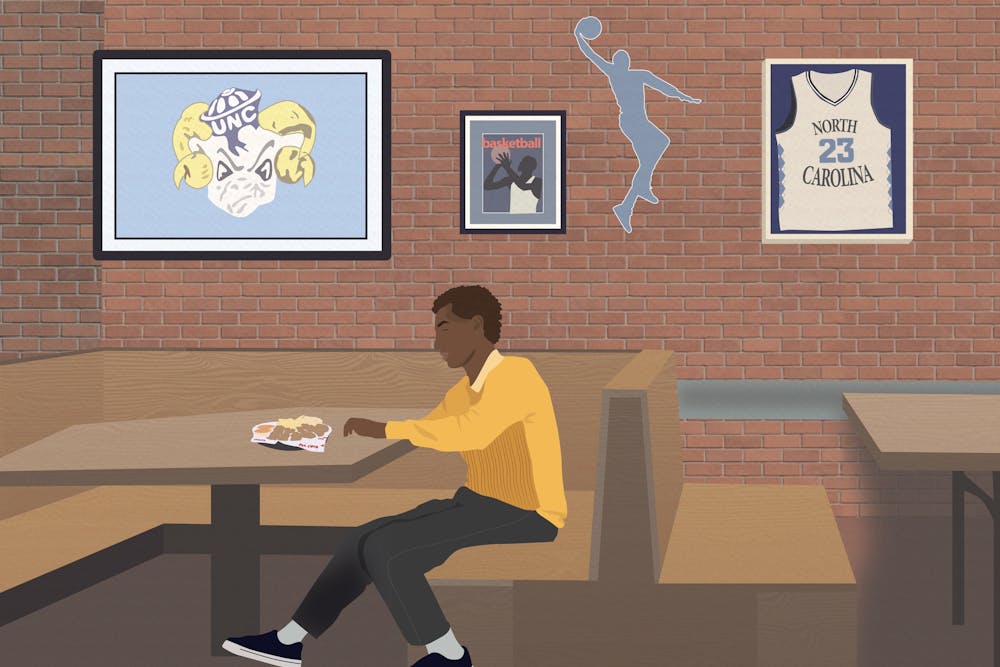Last semester, against the advice of my peers and parents, I canceled my meal plan.
Despite being a freshman on South Campus, I did the math and it turned out that eating out would be less expensive than purchasing a meal plan where the cost of a dinner swipe is $17.25.
Not being particularly keen on cooking in the dorm’s communal kitchens, my semester was filled with a lot of dinners at Chipotle.
Because I was the only one of my friends who lacked a meal plan, I ate dinner alone most nights. At first, occupying a whole table by myself felt so unnatural — I just couldn’t push the overwhelming feeling of awkwardness from my mind. As a relatively extroverted person, the shift from dinners spent at crowded and lively tables in Chase and Lenoir to barren and quiet spaces in restaurants was jarring.
Before you start feeling bad for me — don’t. This choice to cancel my meal plan is not one that I regret at all. In fact, it gave me a unique perspective on the social habits of college students.
I never really grasped that the average college student seems to do everything in herds, groups or at least a duo until I was the odd one out. Eating, relaxing or even walking to class are rarely activities done solo. Most students live on or around campus, surrounded by friends and at times, even sharing a room. The only time when I notice students by themselves is when they are doing homework or studying. On the surface, this makes sense: why would I choose to do things alone when I could do them with a friend?
With little time spent alone, an aversion to it begins to develop and the ability to be comfortable by yourself can wane. While humans are undoubtedly social creatures, being able to be comfortable in solitude is crucial. You realistically won’t always have companionship in all of your endeavors. This doesn’t have to cause you discomfort. There is nothing wrong with doing things alone; in actuality, it’s the best way to better understand yourself.
During my dinners, I had a lot of time that I could spend alone with my thoughts. Initially, this option was so undesirable that I often distracted myself with doomscrolling on social media in light of my lack of conversation.
I eventually became sick of being on my phone for the majority of my meal. Only then did I allow myself to simply think — fully uninterrupted. While it was still a challenge to not fixate on the awkwardness I felt, I began to use this time to reflect on my day, to consider what I wanted from the next one and to better understand myself. This is when I began to appreciate my solitary dinners.




